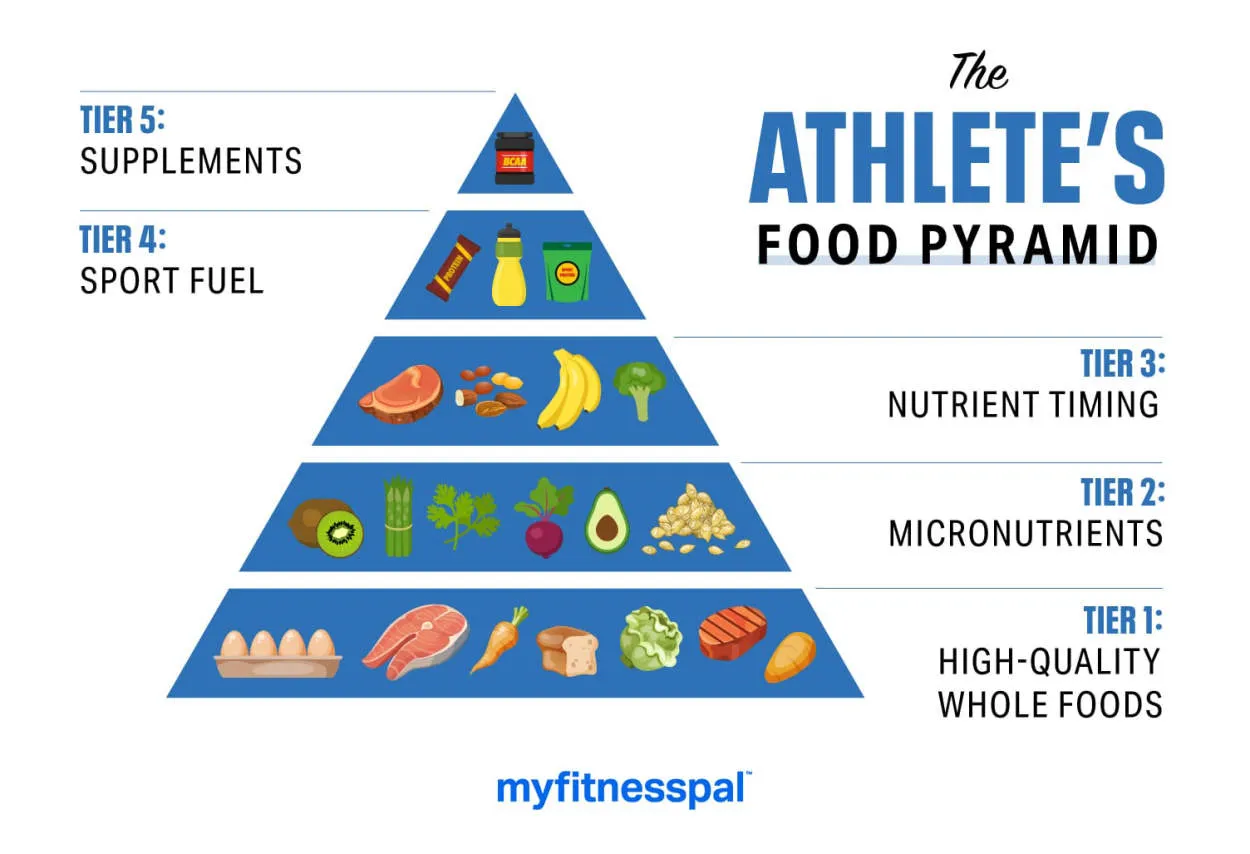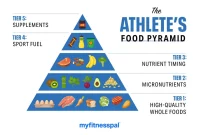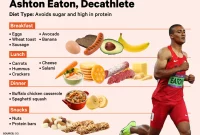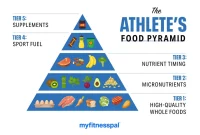Proper nutrition plays a crucial role in optimizing performance for combat sports athletes. Whether you’re a boxer, MMA fighter, or wrestler, fueling your body with the right nutrients can enhance endurance, strength, and overall recovery. In this article, we will explore some essential nutrition tips specifically tailored for combat sports athletes, helping you achieve peak performance inside the ring or octagon.
Dietary Strategies for Strength and Endurance
When it comes to combat sports, athletes require a careful balance of nutrition to optimize their performance. Here are some essential dietary strategies to consider:
1. Prioritize Macronutrients
A well-rounded diet for combat sports athletes should consist of adequate amounts of carbohydrates, proteins, and fats. Carbohydrates provide the energy needed for intense training sessions, proteins support muscle repair and growth, and healthy fats contribute to overall health.
2. Stay Hydrated
Proper hydration is crucial for athletes in combat sports. Dehydration can negatively impact performance and recovery. Aim to drink enough water throughout the day and increase your intake before, during, and after training sessions to replenish lost fluids.
3. Time Your Meals
Meal timing plays a significant role in optimizing performance. Consuming a pre-workout meal 2-3 hours before training can provide the necessary energy, while a post-workout meal within 30 minutes after training aids in muscle recovery. Additionally, eating small and frequent meals throughout the day can sustain energy levels.
4. Focus on Micronutrients
Athletes should ensure an adequate intake of vitamins and minerals to support overall health and performance. Incorporate a variety of colorful fruits and vegetables into meals to obtain essential micronutrients.
5. Fuel with Proper Supplements
Consider incorporating supplements to complement your diet. However, consult with a sports nutrition expert to determine which supplements are suitable for your specific needs.
6. Monitor Weight Properly
Combat sports often involve weight divisions, making proper weight management crucial. Seek guidance from a qualified professional to ensure healthy and sustainable weight loss or gain strategies.
By implementing these dietary strategies, combat sports athletes can enhance their strength and endurance, leading to improved performance in training and competition.
Managing Weight for Fight Categories
In combat sports, such as boxing, mixed martial arts (MMA), and wrestling, athletes often have to meet specific weight requirements for their designated fight categories. Managing weight effectively is crucial to ensure maximum performance and competitive advantage. Here are some important nutrition tips for combat sports athletes to help them achieve their desired weight:
Eat a Balanced Diet
Focus on consuming a well-balanced diet that includes a variety of nutrient-dense foods. This will help you meet your nutritional needs while keeping your calorie intake in check. Include lean proteins, complex carbohydrates, healthy fats, and a wide range of fruits and vegetables.
Maintain Adequate Hydration
Proper hydration is essential for optimal performance and weight management. Drink sufficient water throughout the day and especially during training sessions. Avoid excessive intake of sugary beverages and alcohol, as they can contribute to weight gain and dehydration.
Monitor Caloric Intake
To achieve weight loss or weight maintenance, it’s important to monitor your caloric intake. Determine your daily calorie needs based on your activity level and goals. Aim for a slight calorie deficit to gradually lose weight, but do not drastically reduce calories as it can negatively impact your energy levels and performance.
Opt for Nutrient Timing
Timing your meals strategically can support weight management. Fuel your body with carbohydrates and protein before and after training sessions to provide energy and aid in muscle recovery. Additionally, spacing out smaller, frequent meals throughout the day can help control hunger and prevent overeating.
Seek Professional Guidance
Consulting with a qualified nutritionist or dietitian who specializes in sports nutrition can be highly beneficial. They can develop personalized meal plans, monitor your progress, and provide guidance on supplements, if necessary.
Conclusion
Managing weight effectively for fight categories is crucial for combat sports athletes. By following a balanced diet, staying hydrated, monitoring caloric intake, timing nutrient consumption, and seeking professional guidance, athletes can optimize their weight management and enhance their performance in the ring or cage.
Recovery Nutrition for Combat Athletes
Proper nutrition plays a crucial role in the performance and recovery of combat athletes. To optimize their training and enhance their competitive edge, combat sports athletes need to focus on their post-workout nutrition. Here are some essential recovery nutrition tips for combat athletes:
1. Replenish Carbohydrate Stores
After an intense training session or a fight, combat athletes need to replenish their depleted carbohydrate stores. Carbohydrates provide the primary fuel source for high-intensity activities. Include foods such as whole grains, fruits, and vegetables in your post-workout meal to replenish glycogen stores and aid in muscle recovery.
2. Prioritize Protein Intake
Protein is essential for muscle repair and growth. Combat athletes should consume an adequate amount of protein to support recovery after workouts. Lean sources of protein like chicken, turkey, fish, eggs, and plant-based proteins like tofu and beans should be included in post-workout meals.
3. Include Healthy Fats
Healthy fats, such as those found in avocados, nuts, and olive oil, are vital for combat athletes’ overall health and recovery. Incorporate these healthy fats into your post-workout nutrition to support inflammation reduction and joint health.
4. Stay Hydrated
Hydration is essential not only during workouts but also after to aid in recovery. Combat athletes should aim to replace the fluid lost during exercise. Water should be the primary choice, and sports drinks can be consumed if the workout duration exceeds 60-90 minutes.
5. Don’t Forget Micronutrients
Combat athletes should ensure they meet their daily requirements for essential vitamins and minerals to support recovery and overall health. Including a variety of colorful fruits and vegetables in their post-workout meals will provide the necessary micronutrients.
Remember, personalized nutrition plans may be necessary based on individual needs and training goals. Consulting with a sports nutritionist can help combat athletes optimize their recovery nutrition strategies for peak performance.
Stay tuned for more nutrition tips and strategies tailored specifically for combat sports athletes!
Hydration Tips for Intense Training
In combat sports, hydration plays a vital role in maintaining performance and preventing fatigue. Proper hydration can significantly impact an athlete’s overall training regimen. Here are some essential hydration tips to optimize your performance during intense training sessions:
- Drink water throughout the day: Staying hydrated is not just about drinking water during exercise. Make sure to consume an adequate amount of water throughout the day to ensure your body is properly hydrated before training begins.
- Electrolyte balance: In addition to water, it’s important to replenish electrolytes lost through sweat during intense training. Include sports drinks or electrolyte-rich foods, such as bananas or coconut water, in your hydration routine.
- Pre-workout hydration: Hydrating properly before a training session is crucial. Drink at least 16-20 ounces of water 2-3 hours before training to ensure your body is hydrated and ready to perform.
- During workout hydration: During intense workouts, sip water regularly to maintain hydration levels. Aim to consume 7-10 ounces of fluid every 10-20 minutes, depending on the intensity and duration of your training.
- Post-workout hydration: Rehydrate after training to aid in recovery. Within 30 minutes of completing your workout, consume fluids that include both water and electrolytes to replenish what was lost.
Remember, each athlete’s hydration needs may vary, so pay attention to your body’s signals and adjust your intake accordingly. Proper hydration is essential for combat sports athletes to perform at their best and avoid potential performance declines due to dehydration.
Balancing Macros for Optimal Performance
Nutrition plays a crucial role in optimizing performance for combat sports athletes. One essential aspect of a well-rounded diet is the balance of macronutrients, which include carbohydrates, proteins, and fats.
Carbohydrates
Carbohydrates provide the primary source of energy for combat sports athletes. Opt for complex carbohydrates such as whole grains, fruits, and vegetables. These foods release energy slowly and sustainably, ensuring you have sufficient fuel throughout your training sessions and fights.
Proteins
Proteins are vital for muscle recovery and growth. As a combat sports athlete, aim to consume lean sources of protein, including chicken, fish, tofu, and legumes. Protein intake should be spread out throughout the day to support muscle repair and maintenance.
Fats
Fats are another essential macronutrient for combat sports athletes, as they provide energy and aid in hormone regulation. Choose healthy fats from sources such as avocados, nuts, seeds, and olive oil. However, remember to consume them in moderation, as fats are high in calories.
Caloric Intake
Caloric intake should match the demands of your training and competition schedule. It’s important to ensure you’re consuming enough calories to support your energy needs and maintain a healthy weight. Consult with a nutritionist or dietician to determine your specific caloric requirements.
Hydration
Proper hydration is often overlooked but is of utmost importance for combat sports athletes. Make sure to drink water regularly throughout the day and increase your intake during training sessions. Dehydration can negatively impact performance and recovery.
Individualized Approach
Remember that nutrition is highly individualized. What works for one athlete may not work for another. Experiment with different macronutrient ratios and listen to your body’s response. Consulting with a professional can help tailor a nutrition plan that suits your specific needs and goals.
Conclusion
In conclusion, proper nutrition is essential for combat sports athletes to optimize their performance and support their overall health. A balanced diet rich in lean proteins, complex carbohydrates, and healthy fats, along with adequate hydration, can help athletes maintain energy levels, build lean muscle mass, and enhance their recovery. Additionally, avoiding processed foods, sugary beverages, and excessive alcohol intake is vital for maintaining optimal weight and promoting overall well-being. By following these nutrition tips, combat sports athletes can stay at peak performance and achieve their goals in the ring.




